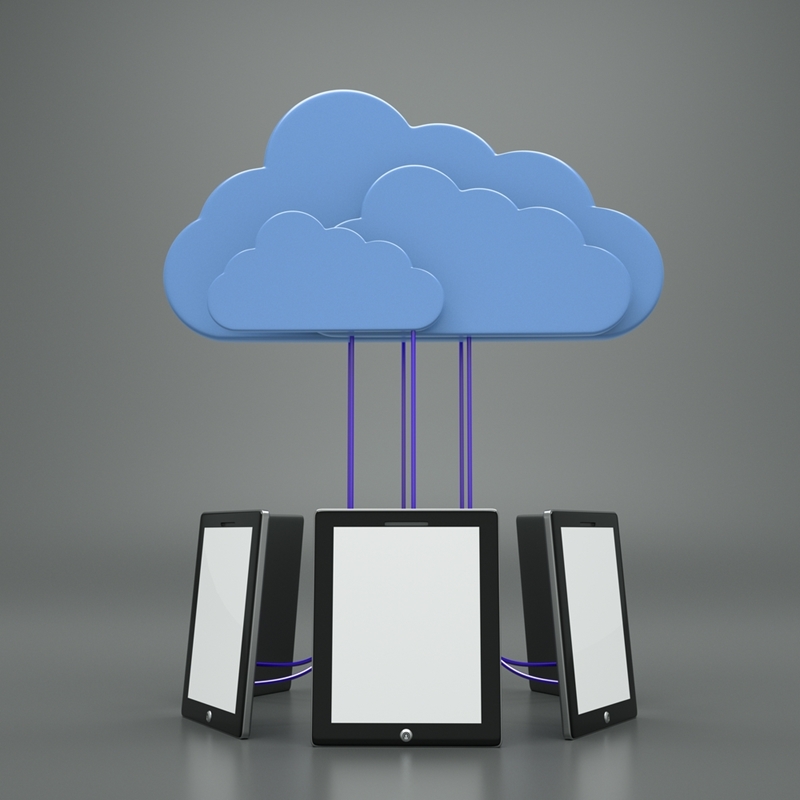The primary disadvantages of cloud computing
Cloud solutions are now a huge part of many business operations. However, buying into the cloud means buying into someone else's service, bringing with it a certain level of risk that you have to accept.
What does cloud computing include?
Essentially cloud computing involves using servers hosted on the internet, rather than in the office you're working from. It usually means that you're using a server owned by another company and lots of other people may also be accessing the same one.
It's common now for software services to use the cloud – with marketing platforms such as Salesforce and HubSpot well-known examples. The Google suite, such as Gmail and Google Docs, are also cloud-based.
Benefits of cloud computing include the ability to connect to your files and data from anywhere, as well as having a third-party provider responsible for rollout, maintenance and upgrades.
It isn't all plain sailing though. Here are several issues you should be prepared for when working in the cloud.

Disadvantages of cloud computing
1) Downtime
With services that rely on a solid internet connection, downtime can be an issue. In the unfortunate event that the cloud service you're using goes down, you have to wait for your internet or service provider to restore access. Your in-house IT team won't necessarily be able to do anything to help.
Many cloud providers guarantee a certain level of availability in their service level agreement (SLA). Check that this meets your requirements, especially if it could affect the level of service you provide to your own customers.
With this is mind, consider how your business continuity and disaster recovery plans are affected by your use of the cloud. If you don't already have one, you'll need to design a contingency plan for if the internet goes down too.
2) Cyber threats
You still need to take steps to protect your data from hackers.
One of the things your cloud provider doesn't necessarily manage for you is cyber security. You still need to take your own steps to protect data from hackers.
Quite how much you need to do depends on the type of cloud service you buy into. In some cases it's entirely your responsibility to make security arrangements, such as data encryption and authentication protocol. Other providers give you access to tools like permission controls that you have to configure for yourself.
In any case, you should check carefully what your provider promises and who actually certifies their claims. Ensure that the level of protection they provide aligns with your obligations to protect the data you hold.
Remember that cloud systems are internet-based and therefore, without proper protection, anyone can access your data. It's not just highly skilled hackers you should be aware of – take steps to ensure that your staff understand how to keep their user information secure to prevent others accessing unauthorised areas.

3) Lack of control
In the same way that you can't control what your cloud service provider actually does in terms of security, you also have to accept that they can change their provision. While automated upgrades and maintenance are useful some of the time, you'll also have no choice in accepting changes when they come.
You can't control when cloud companies release updates which can result in enforced downtime.
Of course, some backend modifications won't even be noticeable in terms of your use. However, other changes could involve re-familiarising yourself with layout and menu routes, or losing access to functionality you found particularly useful.
Especially with regards to cloud software, you also need to know what happens if the vendor goes out of business. How do you access your data? It's worth checking their backup protocol and making arrangements to do your own. This way, whether the provider goes under or you suffer a cyber attack, you still have access to your original data. You also can't control when they provide these updates, which may result in enforced down time. While many providers try to choose a time that's unlikely to affect the majority of their customers, if they work globally it's unlikely to suit for everyone.
Solutions to cloud-based risk
All of the potential problems with cloud-based services stem from a lack of control or personalised service.
Once you've bought into a cloud service, consider hiring a professional IT services company to manage all your cloud operations for you. Often available for one-off jobs or on a contract basis, these companies know tech speak and can liaise with providers as necessary to keep your protected and in the know.
For cloud protection you can rely on, contact Biztech today. We'll do the technical stuff so you can do your day job.